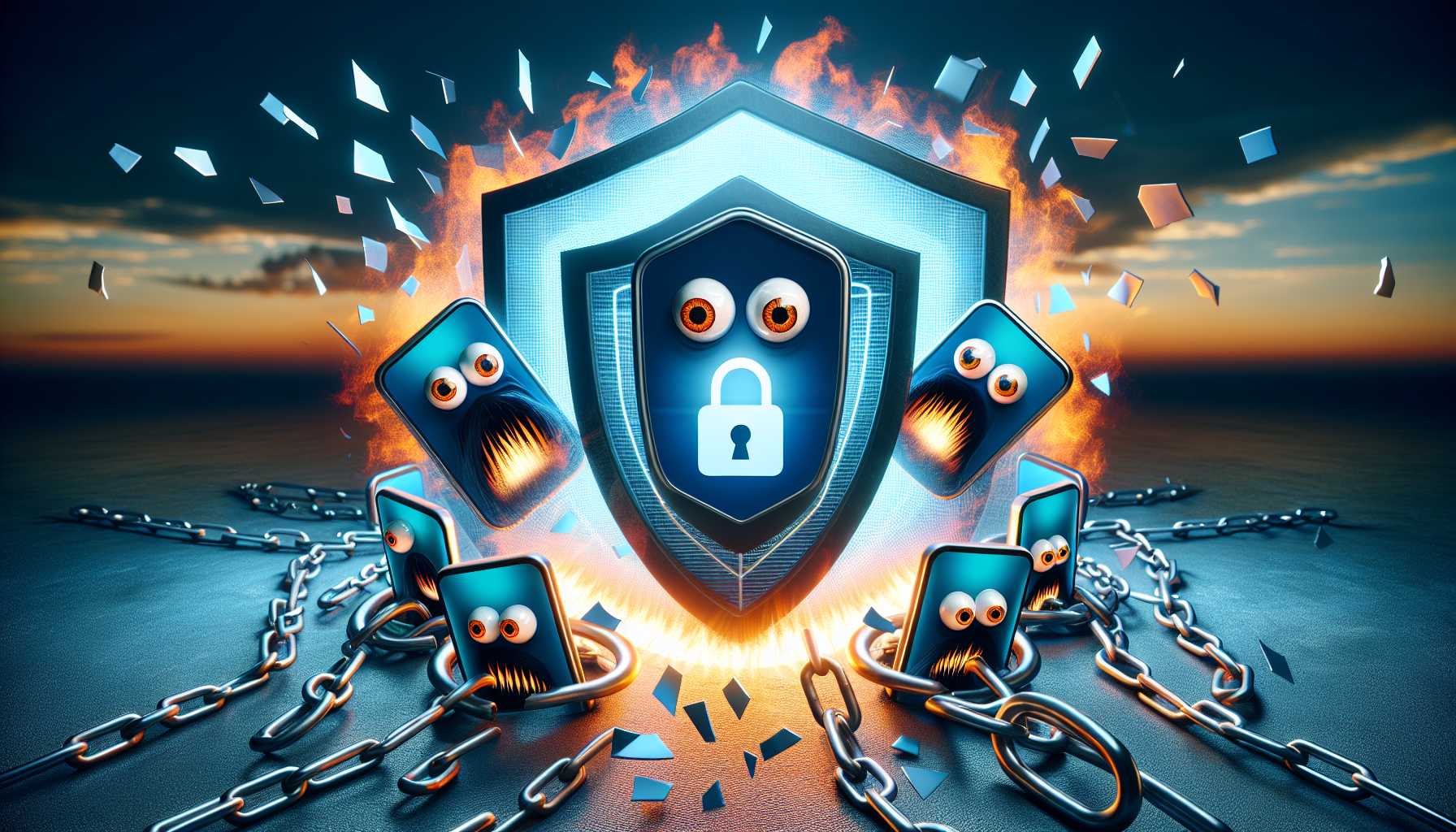Introduction
In the ever-evolving digital landscape, two narratives continue to unfold with critical implications for privacy and ethical use of technology. On one side, we’ve witnessed the repercussions of deficient cybersecurity with Blackbaud’s data breach settlement. Conversely, justice has taken a stand against digital espionage with PhoneSpector and Highster ceasing operations after allegations of promoting illegal spyware. As a tech investor and industry expert, I’m diving deep into these developments, unraveling technical jargon and offering some personal musings on these landmark tech happenings.
The Tech World’s Achilles’ Heel: Lax Cybersecurity Protocols
Blackbaud’s Costly Oversight
Let’s talk about Blackbaud—an education tech behemoth entrusted by prestigious institutions with our most sensitive data. Picture this: a fortified digital vault, brimming with social security numbers, banking details, and personal info. Now imagine the vault’s door swinging open, courtesy of some glaringly lax security protocols—a reality that struck Blackbaud in February 2020. A hacker skulked within Blackbaud’s network playground for three whole months, pilfering unencrypted sensitive data—an alarming cybersecurity faux pas. Initially downplaying the breach, the company later confessed under FTC’s grilling that the cybercriminals did, in fact, swipe more than just contact information. Their mea culpa? A donation of $250,000 to the hacker’s bitcoin wallet, mistakenly believing that would make their problems disappear. Spoiler alert: it did not. The FTC was not amused by Blackbaud’s underwhelming security measures, its failure to diligently monitor hacker break-ins, nor its inadequate encryption practices. The proverbial slap-on-the-wrist includes a mandate for Blackbaud to scrub unnecessary data and amp up their cybersecurity game big time.
A Murky World of Digital Stalking Comes to Light
PhoneSpector and Highster: The End of an Era
Imagine living in an age where your most private moments could be silently broadcasted to prying eyes without your consent. Sounds straight out of a dystopian novel, right? Unfortunately, that was the harsh reality for victims of “stalkerware” apps like PhoneSpector and Highster. These apps were the digital equivalents of having a spy lurking in your pocket, providing jealous partners and overzealous individuals a backdoor into others’ personal lives. The surreptitious nature of these apps meant victims had their texts, photos, and whereabouts monitored without a whiff of suspicion. The irony of the situation? The very tools marketed as “oversight” were glaring oversights in ethical boundaries and legality. Thankfully, New York’s AG Letitia James swooped in with a $410,000 penalty against the shadowy figures behind these apps, citing illegal promotion and aggressive tactics that disregarded privacy laws. In a decisive victory for digital privacy, PhoneSpector and Highster are no longer operational. The settlement involved promises of transforming the apps to serve as less invasive tools—one that would alert users to their phones being monitored. At the time of writing, their digital presence has vanished as if wiped off by an invisible hand, and the tech community can breathe a sigh of relief as two digital culprits fade from memory.
The Bigger Picture: The Intersection of Privacy and Responsibility
Learning from Our Cybersecurity Mistakes
Steering away from a singular focus on these events, let’s consider the broader implications. The Blackbaud data breach saga is a cautionary tale underscoring that no entity—no matter its size or clientele—is impervious to cyberthreats if complacency creeps into its digital defenses. This narrative is not just about a singular tech company’s oversight but rather serves as a critical reminder to organizations worldwide to safeguard consumer data with an impenetrable digital ethos. As for PhoneSpector and Highster’s stalkerware story, it’s a win for privacy but also a stark reminder of the shadowy corners lurking within technological innovations. Surely, these apps won’t be the last of their kind, and vigilance is the watchword as we continue to balance the scales between tech utility and ethical use.
Reflections and Conclusions
As we close this chapter on two riveting tech narratives, let’s reflect. Technology’s promise has always been to enrich our lives with convenience and connection. Yet, these cases remind us that technological advancements come laced with the potential for misuse and malfeasance. From an investor perspective, the tone is clear: companies that don’t prioritize cybersecurity and ethical standards will eventually pay the price—both in reputational damages and hefty penalties. As for consumers, the message resonates equally loud: be vigilant about your digital footprint and the permissions you grant, for the digital realm is brimming with both innovation and malevolence. Ongoing consumer education, robust regulatory frameworks, and industry-wide commitments to ethics and security are the pillars that can sustain digital trust. When those pillars are shaken or overlooked, the digital house can come crashing down. Here’s to hoping for a future where these narratives become obsolete, not because they aren’t told, but because the cybersecurity defeats and ethical blunders that drive them have been vanquished.





